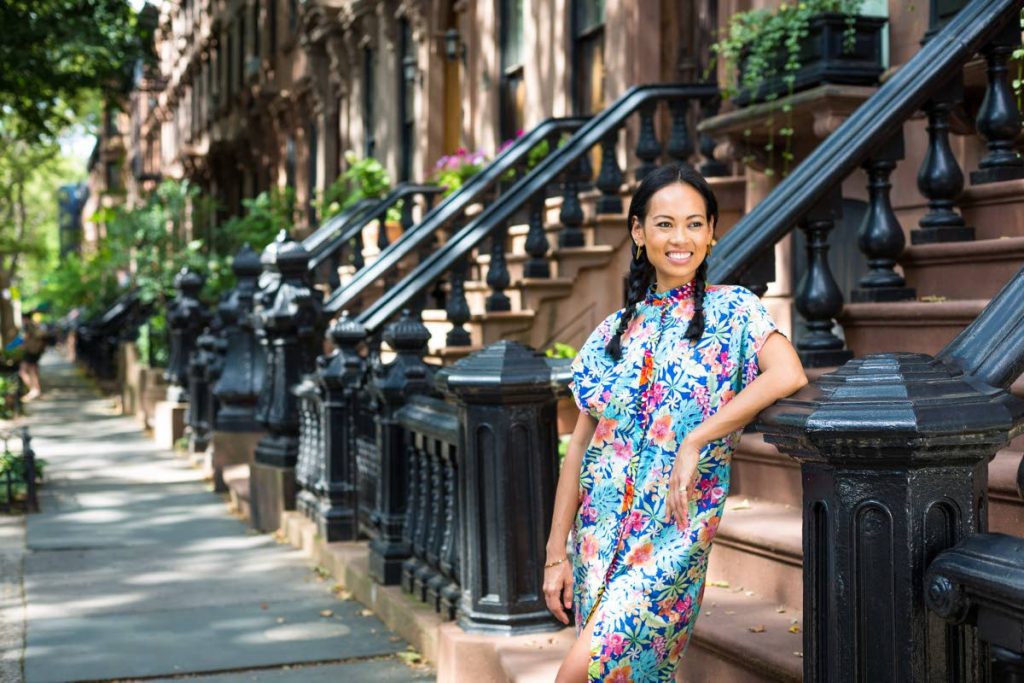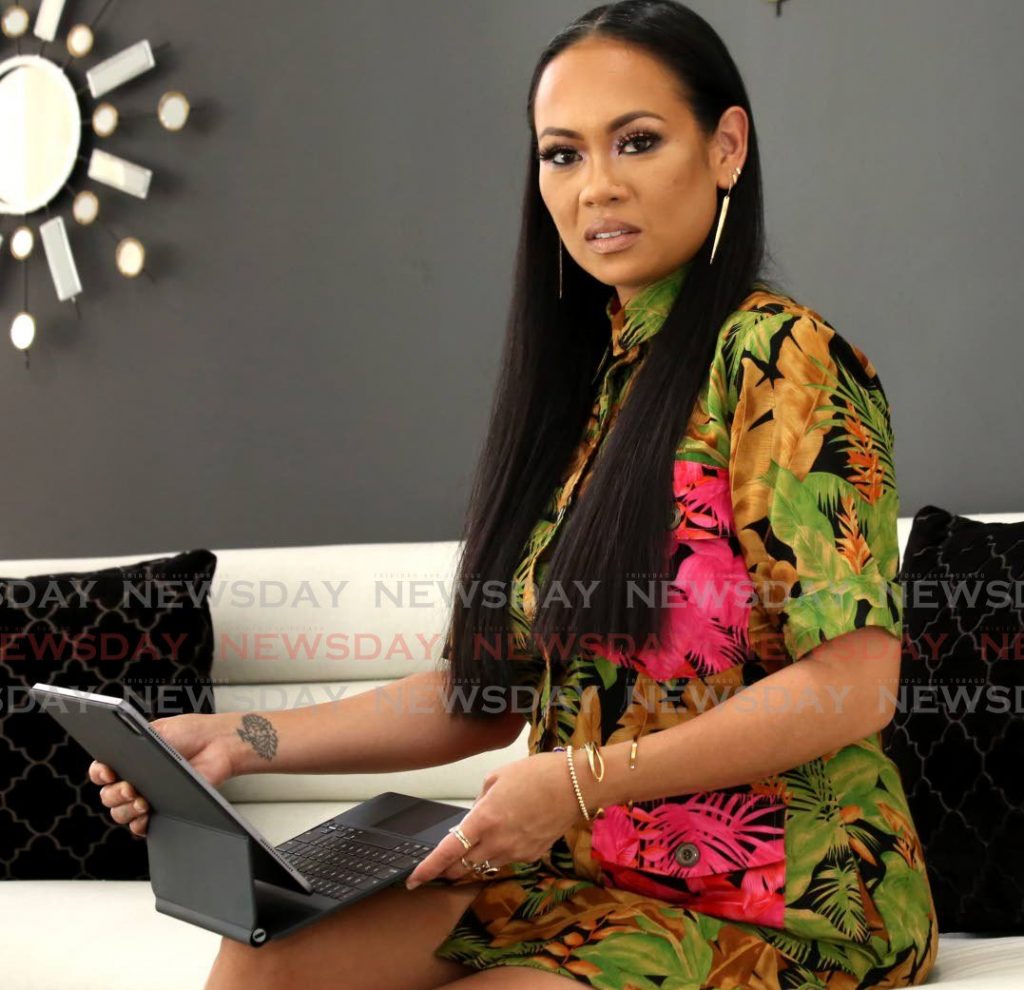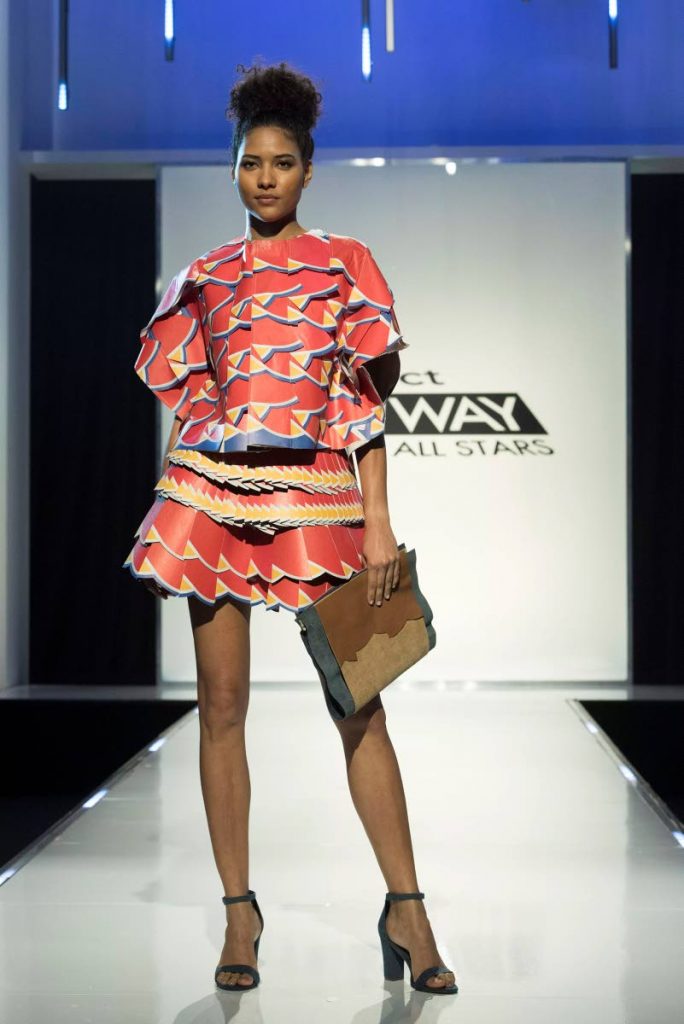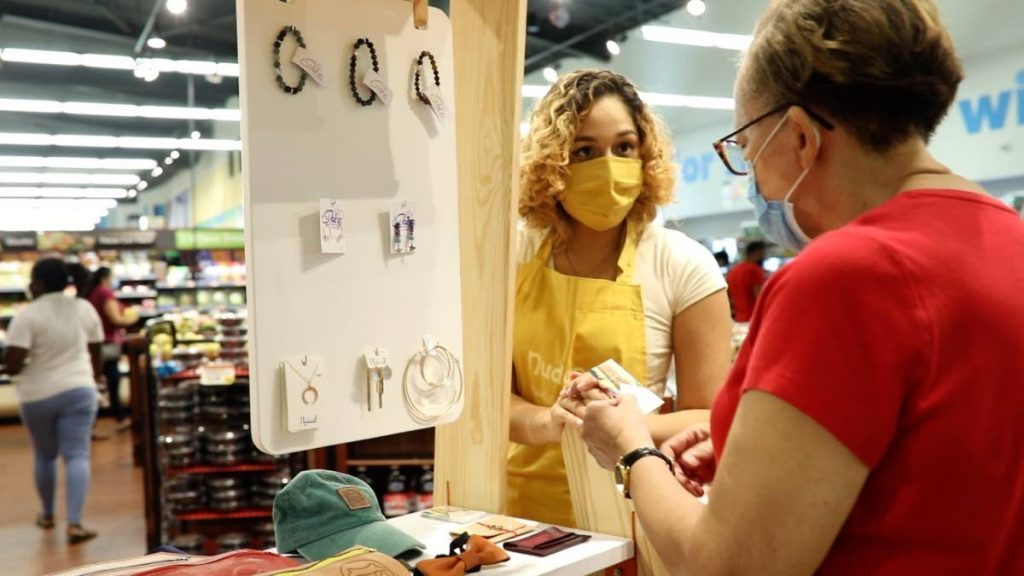Anya Ayoung Chee looks to new markets, social causes

When Anya Ayoung Chee attended the arts and music festival Burning Man in Nevada, about four years ago, she wore her old Monday wear costumes, designed by a variety of local designers. And she fit right in.
It was then the 39-year-old fashion designer and businesswoman had an epiphany.
“It was so ideal for that setting that I was like, why am I beating up with Carnival?” she told Business Day. “About 75,000 people go to this festival. And at maybe 50 per cent of them are women. Within that, a percentage of women who can purchase products at a high price point. This was an amazing market.”
In that moment, she decided she was done designing for Carnival. Instead, her focus would be festivals, like Burning Man. In the US alone 32 million people attend every year, according to music industry magazine Billboard. (That was, of course, before covid19.)
Last February, Ayoung Chee launched WYLD FLWR, her festival-wear fashion line, in New York City. It was bad timing, she laughed, but she’s still confident that despite the pandemic, once festivals are allowed to happen again, the growth potential for the brand will strong.
Monday wear by definition is just one day, and not many of the other carnivals in the world have a two-day festival, so the market is already narrowed – not to mention the thousands of Monday-wear designers out there, she said.
“We make a very unique product,” she said, describing festival wear as a hybridisation of Carnival Monday wear with something appealing to a global audience.
“It’s something that is sustainable – a brand you can look at that you can wear it to a festival, but you can also to, say, a wedding. It’s a product that has more flexibility. And that’s been liberating – seeing a window. As niche as it may be in the grand scheme of things, it is still a more scalable business than Monday wear.”
As she refines her targets, Ayoung Chee is also looking to home in on places beyond the usual diaspora core of the US, UK and Canada. Instead, she wants to set her sights on places like South Africa, Brazil and South East Asia – places that culturally, have a similar style to the Caribbean.

“Here we are beating down the doors of the US and Canada and the UK, but we have to convince them that they need what we make. They don’t have as many reasons or natural usages of super-flowy, vibrant, colourful Caribbean clothes. They might use it on vacation or a festival or seasonally.
“But when you think of Sub-Saharan Africa, SE Asia and Latin America, first of all, there are people in these markets with lots of money, and they also have a lifestyle similar to ours. You don’t have to convince them to wear clothes that are really over the top or encrusted with gems – that is what they do naturally, just like us. So I’m really interested in that. So playing to markets that are culturally similar to us is very exciting to me.”
Really breaking into these non-traditional markets is still in the early phases and she’s discussing options with her team about how to get into them, but she’s made some organic progress, mainly through social media and Instagram ads in specific countries.
“I’m very interested in SE Asia, and haven’t done this yet, but I’m really interested in Brazil, particularly for WYLD FLWR, because of how big carnival is there as well. But I’ve seen traction in incremental sales like seeing people buying things in Dubai or Singapore, but I don’t really know how much of that is on purpose.”
Of course, Ayoung Chee has a platform not many independent local designers can leverage – she’s the Season 9 (2012) winner of hit US reality TV show Project Runway. Which was possible though another advantage – she’s also a US citizen.
Project Runway has undoubtedly given her levels of exposure she would have been unable to achieve – not even as a former Miss Trinidad & Tobago – allowing international brand recognition and credibility that would otherwise take years to cultivate.

“Beyond having a brand that is also recognisable, which is a huge leg-up, I still actively pursue the niche markets outside the Caribbean that have much more scalability. A lot of what I’ve been working on recently is shifting to outside of the US. Our focus is North America and I think we miss a lot of huge markets south of the hemisphere we can tap into.”
One of the best things about Project Runway that people may not realise, she said, is that it’s syndicated all over the world over a decade. “So there are people in say, New Zealand, who might have seen my season for the first time in 2019, and then there’s a sudden interest in my brand that I can’t explain until I kind of put two and two together and realise, oh, the show just showed there.”
Being a US citizen has also helped – not just by allowing her to meet the criteria to participate in the show, but also allowing her access to tools to help start her business.
“On a purely personal basis, in terms of ease of business it’s been massively helpful. I can open bank accounts, etcetera.”
This also helped when in 2014, she started her own Carnival fashion marketplace, Canyaval.
“It was only able to work because I had a US bank account and social security number and could have started a website or registered a company without any barriers. Ease of doing business was easier.
"And I didn’t recognise it before, but Canyaval was that platform – my attempt to allow local designers the opportunity to enter the US market. Canyaval wasn’t my clothes – I mean I had some of my clothes on it, but it was the first time where there was a Carnival product platform where a variety of designers were able sell their designs on the international market.”
That was only two years after she had won Project Runway.
“I had all eyes on me and I know I couldn’t make all the things. I only had one style. I wasn’t interested in being a jack of all trades, I was more interested in using my brand and my exposure to give more designers more opportunities and give consumer more variety. It was a little ahead of its time as an umbrella carnival company.
"Being a US citizen, though, launching it as an e-commerce platform – it was an entry point that not everybody had access to. That has evolved in the sense of now my work has grown beyond fashion, being a bridge between the Caribbean and us.”

Now, she’s working with a company called Caribshopper, which has its roots in Jamaica and is focused on exporting Caribbean goods to the US, Canada and UK. It recently launched selling Jamaican products and now launching in Trinidad and Tobago.
Ayoung-Chee readily acknowledges that if she was not able to access US services and relied solely on TT, starting up her brand would have been significantly more difficult.
“If I didn’t have that US connection…I can’t even begin to map out. We live in a global economy. We (the brand) would never be able to do what we do sustainably if we didn’t have the connections to not just US but other markets.
The ease of business in Trinidad is very hard, she said bluntly, although covid19 has helped automate some of the bureaucracy.
“It all begins with registering a business. Eventually I learnt to just hire somebody to do the thing, but that person now had to go and stand up in a line. It’s very hard to open a bank account, to get a loan. Everything is just hard.
"Then you add creative industries, that I’m a woman – all these things and it gets harder and harder. And I have it the easiest!” she said. “I am constantly aware of that fact that if anybody has it easy it’s me. So imagine if you don’t have money, or don’t have a name; if you are from a rural area or disabled. It is not easy, and it really needs to get easier.”
That’s one of the aim of her social enterprise, Nudge, a partnership with the regional conglomerate Massy, aimed at giving space, exposure, advice and help to small and medium business owners by leveraging big business to help small business.
Because she’s experienced the efficiency of the US system, Ayoung Chee's goal is to figure out a way to replicate that in the Caribbean. “That’s 100 per cent how I found myself in projects like Nudge, so I try to see the opportunity as much as I can in everything.
"I really am cognisant of how much privilege I have in these areas, and I try at every angle to leverage that privilege for the greater good, scaling these opportunities across all communities I can have an impact on.”

Comments
"Anya Ayoung Chee looks to new markets, social causes"